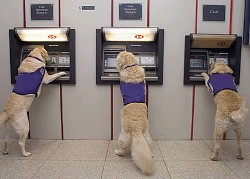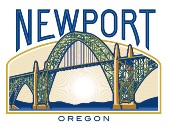Contacts
| Jason Malloy, Chief of Police | 541.574.3348 |
| Patrol | 541.574.3348 |
| Detectives | 541.574.3348 |
| K9 Unit | 541.574.3348 |
| Records Division | 541.574.3348 |
| Community Service Officers | 541.265.4847 |
| Volunteers | 541.574.5866 |
| Dispatch | 541.574.5807 |
| Tip Hotline (ability to leave voice message only - not monitored 24/7) | 541.574.5455 |
| Text-A-Tip (not monitored 24/7) | 541.270.1856 |
| Lincoln County Jail | |
Connect With Us
   |
||||
Frequently Asked Questions
Forms and Documents
| Policy Manual |
| Employment Application |
| Organizational Chart |
| Records Request Form |
| Ride-Along Application — Ride-Along Details |
| SB111 |
| Taxi Driver Permit Application |
| Volunteer Application |
ATM Safety Tips
ATM Safety Tips
 An Automatic Teller Machine, or ATM, is a modern invention that many of us depend on almost every day. The convenience and ease of use makes it a handy alternative to a regular bank visit. However, any transaction involving money can be dangerous if you let your guard down. Follow these safety tips to keep your ATM visits both convenient and safe:
An Automatic Teller Machine, or ATM, is a modern invention that many of us depend on almost every day. The convenience and ease of use makes it a handy alternative to a regular bank visit. However, any transaction involving money can be dangerous if you let your guard down. Follow these safety tips to keep your ATM visits both convenient and safe:
Approaching the ATM
At a drive-up ATM, keep all windows closed except the one you are using, and all vehicle doors locked. Keep the vehicle running and watch the vehicle's front, rear, and sides. If someone approaches your vehicle on foot, cancel the transaction and leave.
If you drive to the ATM and then exit your vehicle to use the ATM, lock the vehicle doors after you exit it. Keep your keys handy so you can re-enter your vehicle quickly after completing your transaction.
When approaching the ATM, be alert for anything suspicious, such as two or more people in a nearby vehicle or someone "hanging around" the area, especially if no one else is at the ATM.
If possible, try to use the ATM during daylight hours.
After dark, avoid using an ATM with shrubbery, etc. that prevents a clear view of the area. If the area is not well lighted or the lights are out, don't approach the ATM.
Do not select an ATM at the corner of a building. Corners create a blind area in close proximity to the customer's transaction. Select an ATM located near the center of a building. An ATM further from the corner reduces the element of surprise by an assailant and increases effective reaction time by the user.
Using the ATM
|
 |
|
|
Fraud Considerations
- Make sure you retain your transaction receipt. Do not throw the receipt away at the ATM site.
- The National Consumers League has opened a toll-free number to provide information on ATM frauds and scams. The National Fraud Information Center at 1-800-876-7060 employs counselors who will refer consumers to the proper agency for reporting a fraud or scam.
- Immediately report any stolen or lost ATM card to the proper entities.
As far as your security is concerned, you can never be too careful, too prepared or too aware. Share this information with family and friends. Schedule family discussions and practice regularly to ensure that everyone you know is safe and informed.


